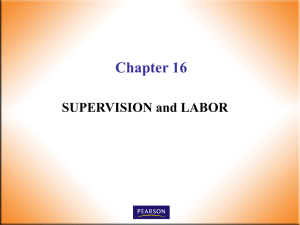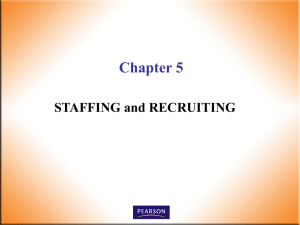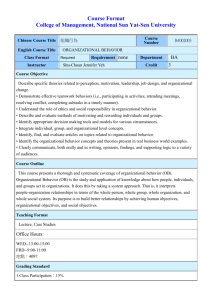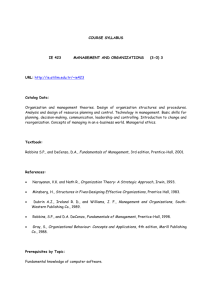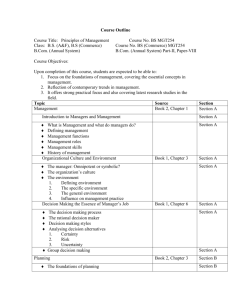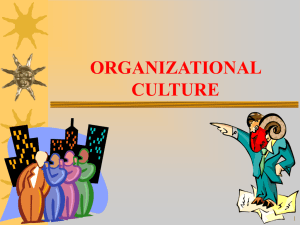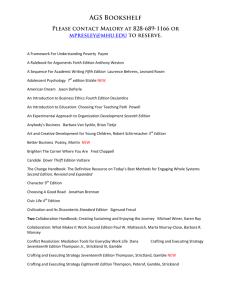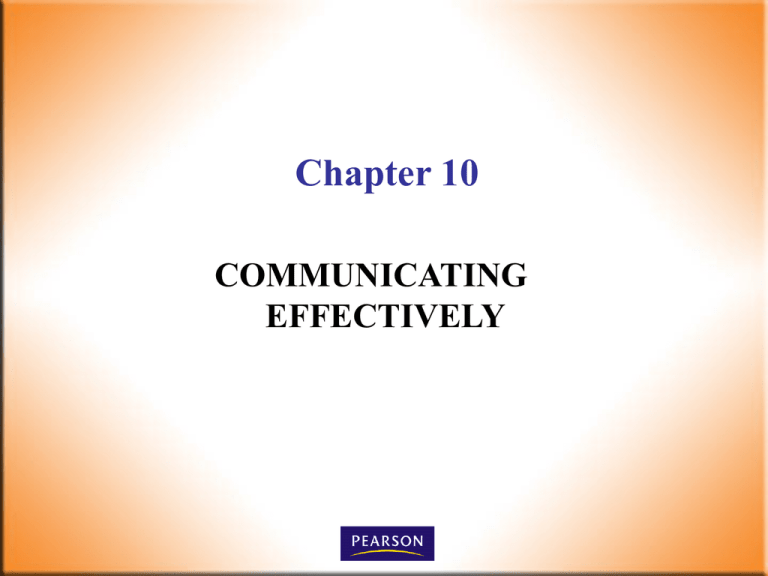
Chapter 10
COMMUNICATING
EFFECTIVELY
Chapter Outcomes
Define communication and the communication process.
Contrast formal and informal communication.
Explain how electronic communication affects the
supervisor’s job.
List barriers to effective communication.
Describe techniques for overcoming communication
barriers.
List the essential requirements for active listening.
Explain what behaviors are necessary for providing
effective feedback.
Supervision Today! 6th Edition
Robbins, DeCenzo, Wolter
2
© 2010 Pearson Higher Education,
Upper Saddle River, NJ 07458. • All Rights Reserved.
EXHIBIT 10–1
The communication process.
Supervision Today! 6th Edition
Robbins, DeCenzo, Wolter
3
© 2010 Pearson Higher Education,
Upper Saddle River, NJ 07458. • All Rights Reserved.
Methods of communication
Formal
Informal
Oral
Written
Electronic
Nonverbal
Grapevine
Supervision Today! 6th Edition
Robbins, DeCenzo, Wolter
4
© 2010 Pearson Higher Education,
Upper Saddle River, NJ 07458. • All Rights Reserved.
Nonverbal communication
Gestures
Facial configurations
Other body movements
Communicating emotions or temperament
Aggression
Fear
Shyness
Arrogance
Joy
Anger
Supervision Today! 6th Edition
Robbins, DeCenzo, Wolter
5
© 2010 Pearson Higher Education,
Upper Saddle River, NJ 07458. • All Rights Reserved.
The grapevine
Means of communication by which most
operative employees first hear about important
changes introduced by organizational leaders;
the rumor mill.
Four purposes:
1.
2.
3.
4.
To structure and reduce anxiety
To make sense of limited and fragmented
information
To serve as a vehicle to organize group members
To signal a sender’s status
Supervision Today! 6th Edition
Robbins, DeCenzo, Wolter
6
© 2010 Pearson Higher Education,
Upper Saddle River, NJ 07458. • All Rights Reserved.
EXHIBIT 10–2
Grapevine patterns.
Source: John W. Newstrom and Keith Davis, Organizational Behavior: Human behavior at Work, 9th ed. (New York: McGraw-Hill,
1993), p. 445. Reprinted with permission.
Supervision Today! 6th Edition
Robbins, DeCenzo, Wolter
7
© 2010 Pearson Higher Education,
Upper Saddle River, NJ 07458. • All Rights Reserved.
EXHIBIT 10–3
Barriers to effective communication.
Supervision Today! 6th Edition
Robbins, DeCenzo, Wolter
8
© 2010 Pearson Higher Education,
Upper Saddle River, NJ 07458. • All Rights Reserved.
EXHIBIT 10–4
What do you see—an old woman or a young lady?
Supervision Today! 6th Edition
Robbins, DeCenzo, Wolter
9
© 2010 Pearson Higher Education,
Upper Saddle River, NJ 07458. • All Rights Reserved.
Improve communication
Think first
Constrain emotions
Learn to listen
Tailor language to receiver
Match words and actions
Use feedback
Participate in assertiveness training
Supervision Today! 6th Edition
Robbins, DeCenzo, Wolter
10
© 2010 Pearson Higher Education,
Upper Saddle River, NJ 07458. • All Rights Reserved.
Active listening
Active v. passive
Four requirements for Active Listening:
1.
2.
3.
4.
Supervision Today! 6th Edition
Robbins, DeCenzo, Wolter
Intensity
Empathy
Acceptance
Willingness to take responsibility for
completeness
11
© 2010 Pearson Higher Education,
Upper Saddle River, NJ 07458. • All Rights Reserved.
Suggestions for effective feedback
Focus on specific behaviors.
Keep feedback impersonal.
Keep feedback goal oriented.
Make feedback well timed.
Ensure understanding.
Direct feedback for improvement toward
behavior that the receiver can control.
Supervision Today! 6th Edition
Robbins, DeCenzo, Wolter
12
© 2010 Pearson Higher Education,
Upper Saddle River, NJ 07458. • All Rights Reserved.

